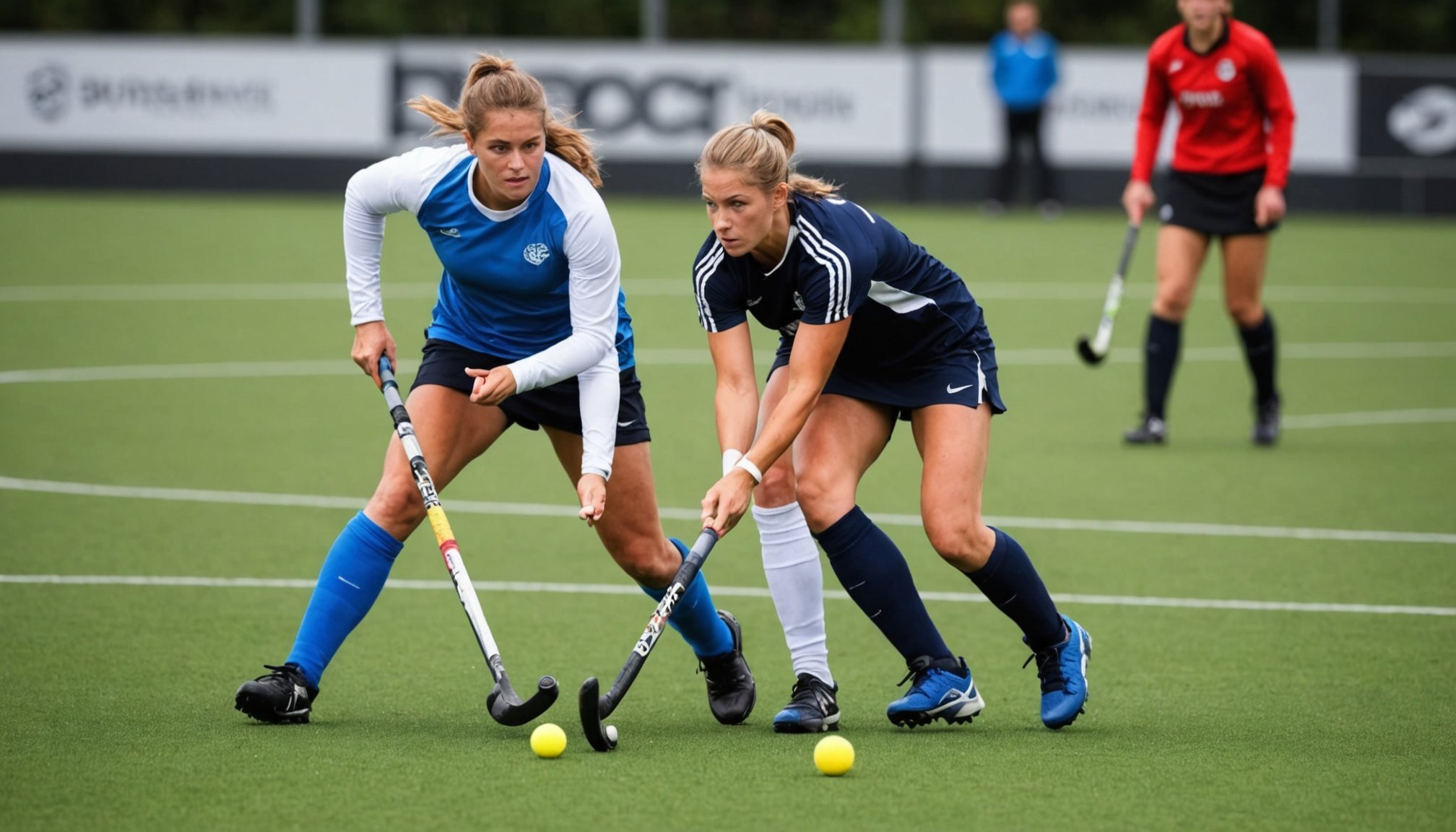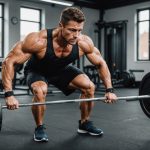Top Training Strategies for Boosting Performance in UK Field Hockey Players
Field hockey is a demanding and highly skilled sport that requires a combination of physical fitness, technical proficiency, and tactical awareness. For UK field hockey players aiming to enhance their performance and compete at the highest levels, here are some top training strategies that can make a significant difference.
Understanding the Game and Its Demands
Before diving into specific training strategies, it’s crucial to understand the game of field hockey and its physical and technical demands. A field hockey game is played on a 91.4 meters by 55 meters field with 11 players on each team, including a goalkeeper. The game is divided into four quarters, each lasting 15 minutes, with breaks in between[1].
Also read : Exploring Cutting-Edge Sports Science Innovations to Elevate UK Athletes
Physical Demands
Field hockey is a high-intensity sport that requires quick bursts of speed, agility, and endurance. Players need to be able to change direction rapidly, maintain a high level of cardiovascular fitness, and possess strong muscular strength and power.
Technical Skills
Technical skills such as ball control, passing, and shooting are fundamental to the game. Players must be adept at using the flat side of the stick to control and move the ball, and they need to be proficient in various types of passes and shots.
This might interest you : Essential Warm-Up Routines to Boost Performance for UK Basketball Players
Strength Conditioning and Fitness Training
Strength conditioning and fitness training are essential components of any field hockey player’s regimen.
Strength Training
Strength training helps improve power, speed, and endurance. Here are some key areas to focus on:
- Lower Body Strength: Squats, deadlifts, and lunges are crucial for building the strength needed for explosive movements like sprinting and changing direction.
- Upper Body Strength: Exercises like push-ups, pull-ups, and rows help in improving stick handling and overall upper body strength.
- Core Strength: Planks, Russian twists, and leg raises are vital for enhancing stability and balance.
| Exercise | Sets | Reps | Frequency |
|
|------|
|-----------|
| Squats | 3-4 | 8-12 | 2-3 times/week |
| Deadlifts | 3-4 | 8-12 | 2-3 times/week |
| Push-ups | 3-4 | 12-15| 2-3 times/week |
| Pull-ups | 3-4 | 8-12 | 2-3 times/week |
| Planks | 3-4 | 30-60 seconds | 2-3 times/week |
Cardiovascular Fitness
Cardiovascular fitness is critical for maintaining a high level of performance throughout the game. Here are some effective ways to improve cardiovascular fitness:
- High-Intensity Interval Training (HIIT): This involves short bursts of high-intensity exercise followed by brief periods of rest. For example, sprinting for 30 seconds followed by a 30-second rest.
- Endurance Training: Long-distance running, cycling, or swimming can help build endurance.
- Small-Sided Games: Playing smaller-sided games (e.g., 3v3 or 4v4) can simulate the intensity of a full game while focusing on specific skills.
Technical Skills Development
Technical skills are the backbone of field hockey, and continuous development is key to improving performance.
Ball Control and Stick Handling
- Drills: Conduct drills that focus on controlling the ball with different parts of the stick. For example, using the flat side, the edge, and the reverse stick.
- Wall Ball Drills: Practicing against a wall or a rebound board can help improve stick handling and ball control in isolation.
Passing and Receiving
- Partner Drills: Practice passing with a partner, focusing on different types of passes (e.g., slap pass, push pass, and flick pass).
- Game Situations: Practice passing and receiving in game-like situations to improve decision-making and execution under pressure.
Shooting
- Goal Shooting Drills: Practice shooting from different angles and distances. Use different types of shots (e.g., slap shot, drag flick, and push shot).
- Breakaway Drills: Practice shooting in one-on-one situations against a goalkeeper.
Tactical Awareness and Decision Making
Tactical awareness and decision making are critical for success in field hockey.
Game Scenarios
- Small-Sided Games: Play small-sided games that simulate different game scenarios. This helps players develop the ability to make quick decisions in various situations.
- Video Analysis: Watch game footage to analyze and understand different tactics and strategies. This can help players recognize patterns and make better decisions during the game.
Position-Specific Training
- Defenders: Focus on defensive skills such as tackling, intercepting passes, and marking opponents.
- Midfielders: Work on transitioning from defense to offense, maintaining possession, and distributing the ball effectively.
- Forwards: Practice creating scoring opportunities, beating defenders, and finishing chances.
Mental Preparation and Well-being
Mental preparation and well-being are often overlooked but are crucial for peak performance.
Psychological Support
- Sports Psychologists: Work with sports psychologists to develop mental toughness, manage stress, and improve focus and concentration[4].
- Team Building: Engage in team-building activities to enhance cohesion and communication among players.
Injury Prevention and Recovery
- Injury Prevention Programs: Implement programs that focus on preventing common injuries such as ACL tears and hamstring strains. This includes strength training, flexibility exercises, and proper warm-up and cool-down routines.
- Recovery Techniques: Use recovery techniques like ice baths, foam rolling, and adequate rest to ensure players are physically and mentally ready for the next training session or game.
Talent Development and International Competitions
For players aiming to compete at the international level, talent development programs and exposure to high-level competitions are essential.
Youth Development Programs
- Junior Leagues: Participate in junior leagues and tournaments to gain experience and develop skills in a competitive environment.
- National Camps: Attend national camps and training programs to receive coaching from experienced coaches and to be scouted for senior international teams.
Senior International Competitions
- Competing Against Top Teams: Playing against top international teams helps players gain experience and understand the level of competition at the highest stage.
- Coaching and Feedback: Receive coaching and feedback from experienced coaches who have worked with senior international teams.
Integrating Sports Science and Technology
Integrating sports science and technology can provide a competitive edge.
Data Analysis
- Performance Metrics: Use data analytics to track performance metrics such as speed, agility, and endurance. This helps in identifying areas for improvement and in making data-driven decisions[2].
- Video Analysis: Use video analysis software to review game footage, analyze player performance, and develop strategies based on data.
Wearable Technology
- GPS and Heart Rate Monitors: Use wearable technology like GPS and heart rate monitors to track player workload, intensity, and recovery. This helps in managing player fatigue and reducing the risk of injuries.
Practical Insights and Actionable Advice
Here are some practical insights and actionable advice for UK field hockey players:
Create a Balanced Training Plan
- Ensure your training plan includes a balance of strength conditioning, cardiovascular fitness, technical skills development, and tactical training.
- Allow for adequate rest and recovery time to avoid burnout and injuries.
Focus on Decision Making
- Practice game scenarios that require quick decision making. This can be done through small-sided games and drills that simulate real-game situations.
Seek Professional Guidance
- Work with experienced coaches and sports psychologists to get personalized feedback and guidance.
- Use data analytics and video analysis to understand your performance better and make informed decisions.
Boosting performance in field hockey requires a holistic approach that includes physical training, technical skills development, tactical awareness, mental preparation, and the integration of sports science and technology. By focusing on these areas and seeking professional guidance, UK field hockey players can enhance their skills, improve their performance, and compete at the highest levels.
As Great Britain’s hockey coach, Danny Kerry, once said, “The key to success is not just about the physical and technical aspects, but also about the mental toughness and the ability to make quick decisions under pressure.” By combining these elements, players can achieve their full potential and excel in the sport they love.






